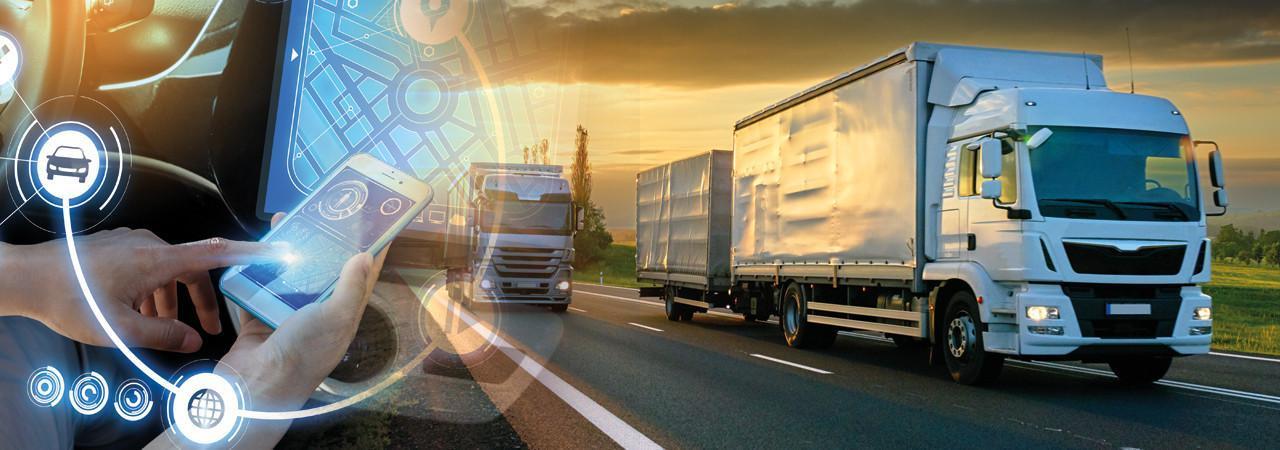What is the role of Telematics in the Transport and Logistics industry and how will it impact digitisation?
The foundation of Telematics is the technology that collects, stores and sends information between end users and vehicles through telecommunication devices.
Those in agreement that the Transport and Logistics industry needs to be more focused around optimisation (from routes and fuel efficiency, to driver and vehicle performance) may also agree that in this age of fast paced technology advancements the need to embrace technology is pivotal in increasing and maintaining a competitive edge and bottom line profitability: customer retention and growth above the competition being the ultimate goal by all enterprises, regardless of their size and scale.
Meeting increased customer demand driven by a continued access to data through 'always on' devices now requires the continuous monitoring of hundreds of dynamic details about each payload across any Logistical fleet. Telematics has been adopted widely by industries including the insurance sector, offering its customers a more bespoke and customer centric insurance policy according to driver behaviour and other variables, enabling cheaper insurance premiums and therefore increased customer attraction and retention.
This form of collecting data analytics has been in place throughout the Transport and Logistics world for some time now, but with a continued drive toward digitisation across current IT deployments, how does the effective use of Telematics data enable enterprises to monitor and improve the delivery of any given payload, on time delivery, prime condition of goods as well as delivery to the correct customer?
Telematics offers the ability to monitor and analyse every detail of a Logistical process helping to make proactive decisions that increase customer service levels, reduce operating costs, maximise driver and cargo safety and prolong the lifespan of any fleet, whether it be cars, trucks, ships or planes.
The benefits of Telematics include the use of geo-fencing to trigger alerts should a delivery/payload or asset move out of an expected zone of activity, with vehicle diagnostics and early warning systems able to monitor fuel consumption and driver behaviour. Telematics can also increase vehicle performance through maintenance checks, and help to foresee traffic congestion due to accidents on a chosen delivery route. All these benefits offer a possible reduction in the cost of operations directly impacting the bottom line as well as increasing revenue through customer service experience and retention.
Uses for Telematics are restricted only by the imagination: truck fleets gathering data from engine modules to determine when a truck needs maintenance, when a load will reach its destination or if a load has been tampered with. These are all current capabilities deployed and in use, aiding to reduce overall operational cost and increase competitive advantage, over that of an older less informed methodology in transporting a payload across the full shipment movement process and checkpoints associated with this.
Using cellular networks to transmit data back to servers hosted often by a third-party cloud service provider, data stored in the cloud ensures information is available to access from any device with an internet connection, without geographical restrictions. This can however generate a vast amount of data, such as a detailed history of vehicle and driver activities and operations. This type of data is extremely useful in an organisation for controlling fuel and maintenance costs, increasing productivity and safety, and minimising risk. However, deciding how and where this data is to be stored for ease of access is often a question at the top of any justification focusing on cost of ownership and return on investment.
Furthermore, protecting this valuable data is essential. Whether you are a small business owner, fleet manager, developer, CIO or CEO, it's critical that you understand how your telematics data is stored, handled and protected.
So as the Transport and Logistics industry moves closer to complete connectivity and gradually toward autonomous technology, will data privacy and cyber security take centre stage?
When you subscribe to the blog, we will send you an e-mail when there are new updates on the site so you wouldn't miss them.

